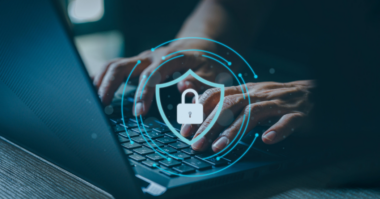Technical pump training is an important part of every employee’s development when they join the pump industry. However, not all new hires receive the training they need to become knowledgeable pump professionals.
Have you ever met a pump distributor who wasn’t able to provide meaningful feedback about a straightforward pump application? Do you know an Engineer who only ever designs around one type of pump, even when another type makes a lot more sense for the application? Have you ever sat through a presentation made by a pump manufacturer, and realized that the presenter knew their presentation, but didn’t know very much about pumps? Have you ever spoken to pump user who didn’t know what a split-case pump was even though they had several installed in their system? Over the last seven years I’ve seen all of these situations play out multiple times.
While there are exceptions, the pump industry as a whole is not exceptionally good at ensuring that new entrants get the training they need to develop into the exceptional pump professionals they can be.
Is Formal or Informal Training Better?
When it comes to pump training, there are two types of training that should be made available to new hires:
- Formal training: Structured classes, either in-person or online, with a set curriculum, designed to meet specific learning objectives.
- Informal training: Learning that takes place through conversations with coworkers, independent research, and the completion of work responsibilities.
There have been a number of studies that explored the relationship between formal and informal training. What the research suggests is that informal and formal training are most effective when they work in unison. Formal training is a good way to introduce technical concepts, such as how to make a pump selection or what NPSHr is, and then informal training provides on-the-job context for that knowledge.
So the answer to the question is that both formal and informal training are important. Formal training is a good way to provide technical knowledge, but that knowledge must be reinforced by informal application for it to have long-term benefit.
What’s Happening in the Pump Industry?
The range of training offered by organizations that are part of the pump industry varies widely. Some organizations, typically large pump manufacturers, do a reasonably good job of balancing formal and informal training methods. On the other hand, many smaller firms, and small independent distribution companies in particular, offer no formal training, and depend purely on informal training.
My personal experience is that the pump industry is suffering from a lack of high quality formal training, and is overly dependent upon informal methods. When informal methods are relied upon to the exclusion of formal programs, the result is a body of pump knowledge that is incomplete, and often includes flawed ideas about fundamental pump topics. I’ve heard many Engineers and experienced pump professionals bemoan the fact that the technical pump expertise available from Engineers, manufacturers, and distributors is not nearly as good as it was in past decades.
The Benefits of Improving Training
Smart pump distributors, manufacturers, and Engineers will see an opportunity in today’s undertrained pump industry. Firms that choose to invest heavily, and strategically, in pump training have the potential to reap significant benefits.
Training does have a cost. Good formal training is not free, and business leaders are wise to consider the potential benefits before signing their new hires up for training programs. Studies have shown that effective training has many potential benefits.
- Properly trained employees are more productive, and require less supervision and assistance to accomplish their work responsibilities.
- Employees who receive training feel valued by their employer, become more loyal to their employer, and are less likely to seek out new employment.
- Reduced turnover and improved employee efficiency results in financial gains for the business.
How to Improve Training
If you’re sold on the idea that your training regimen could use some improvement here are a few tips for creating an effective training system:
- Managers must select and coordinate formal training. Don’t wait for your employees to ask for training, for the most part they won’t. Employees often report feeling guilty about requesting or participating in training on-the-job. The way to alleviate these worries is for management to endorse the training that is being completed.
- Manager must give explicit permission for employees to seek out both formal and informal training. Often times, the most effective form of informal training occurs when a new hire sits down with an experienced pump professional and asks specific questions about a project. However, if socialization is discouraged, this sort of informal training won’t happen.
- When selecting training programs, ensure that they aren’t too advanced for the new hire’s current knowledge level. New hires who don’t know the difference between a vertical inline pump and a vertical turbine pump don’t need to learn about Bernoulli’s principle.
- When selecting training programs, be picky. Don’t just select a program from the most well-known company. Instead, seek out programs that can provide third-party testimonials and offer a satisfaction guarantee.
When informal on-the-job training provides context for the knowledge gained through formal training, the result will be a new hire that becomes a knowledgeable pump professional much faster than their industry peers.



